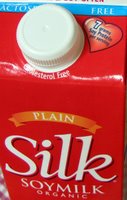Does Fermentation Raise or Lower the Isoflavone Content of Soy Foods? 1
I've read that soy isoflavones, polyphenolic compounds similar in structure to estrogens (called phytoestrogens), were "present in the fermented foods but not detectable in the non-fermented versions."
I've also read that "anti-nutrients" in soy, such as goitrogens, which negatively affect thyroid function - of which isoflavones are one - are removed through fermentation.
Which is it?
Are isoflavones absent from non-fermented soy foods? Or are they absent from fermented soy foods?
More importantly, do I want to eat them? (Isoflavones have a reputation for both preventing cancer and promoting cancer, depending on the source.)
Back to the fermented question - I don't understand how a complex estrogen-like molecule could be absent from the raw food but somehow materialize in the food's fermented form. I might accept the inverted claim, that isoflavones are present in the food's raw state and are somehow lost through fermentation.
The USDA did some nice analysis on the isoflavone content of food in 1999. Here's a snippet:
Click chart for full report (pdf).
Amounts are listed as mg of isoflavones per 100 grams (about 3.5 ounces) of food.
From this, isoflavones exist in both fermented and non-fermented soy foods, in significant amounts.
Now That I Know What Foods Contain Isoflavones, Should I Be Eating Them?
In 1999, the year the above Isoflavone Table appeared, the FDA reviewed current research and decided to allow a health claim on foods that contained soy protein (isoflavones are often found stuck to the surface of [adsorbed to] soy proteins):
"Diets low in saturated fat and cholesterol that include 25 grams of soy protein a day may reduce the risk of heart disease."But in February of this year, the American Heart Association (AHA), backtracking on its prior recommendation, published a review of investigations into soy protein and its component isoflavones. They concluded:
- FDA Approves New Health Claim For Soy Protein and Coronary Heart Disease
"[The] use of isoflavone supplements in food or pills is not recommended."They also found:
- Soy protein had no significant effect on high-density lipoprotein (HDL), triglycerides, lipoprotein(a), or blood pressure.
- Soy protein lowered low-density lipoprotein (LDL) by a modest 3%. This occurred only when a large amount of soy protein was ingested: about 50g. (For comparison, a person consuming 2000 calories/day would want to get about 60g protein from all sources, 2500 calories/day about 75g. So 50g soy protein is a Big Gulp.)
- Soy protein or isoflavones were not shown to improve vasomotor symptoms of menopause (hot flashes).
- "The efficacy and safety of soy isoflavones for prevention or treatment of cancer of the breast, endometrium, and prostate are undetermined, and evidence from clinical trials is limited but suggests a possible adverse effect."
Source: Soy Protein, Isoflavones, and Cardiovascular Health; An American Heart Association Science Advisory for Professionals From the Nutrition Committee
 Yet, Silk Soymilk continues to blatantly advertise "7 grams Soy Protein per serving!" And my local Vitamin Shoppe continues to sell isoflavone supplements.
I think I'll forego the spurious Silk.
Yet, Silk Soymilk continues to blatantly advertise "7 grams Soy Protein per serving!" And my local Vitamin Shoppe continues to sell isoflavone supplements.
I think I'll forego the spurious Silk.
No comments:
Post a Comment